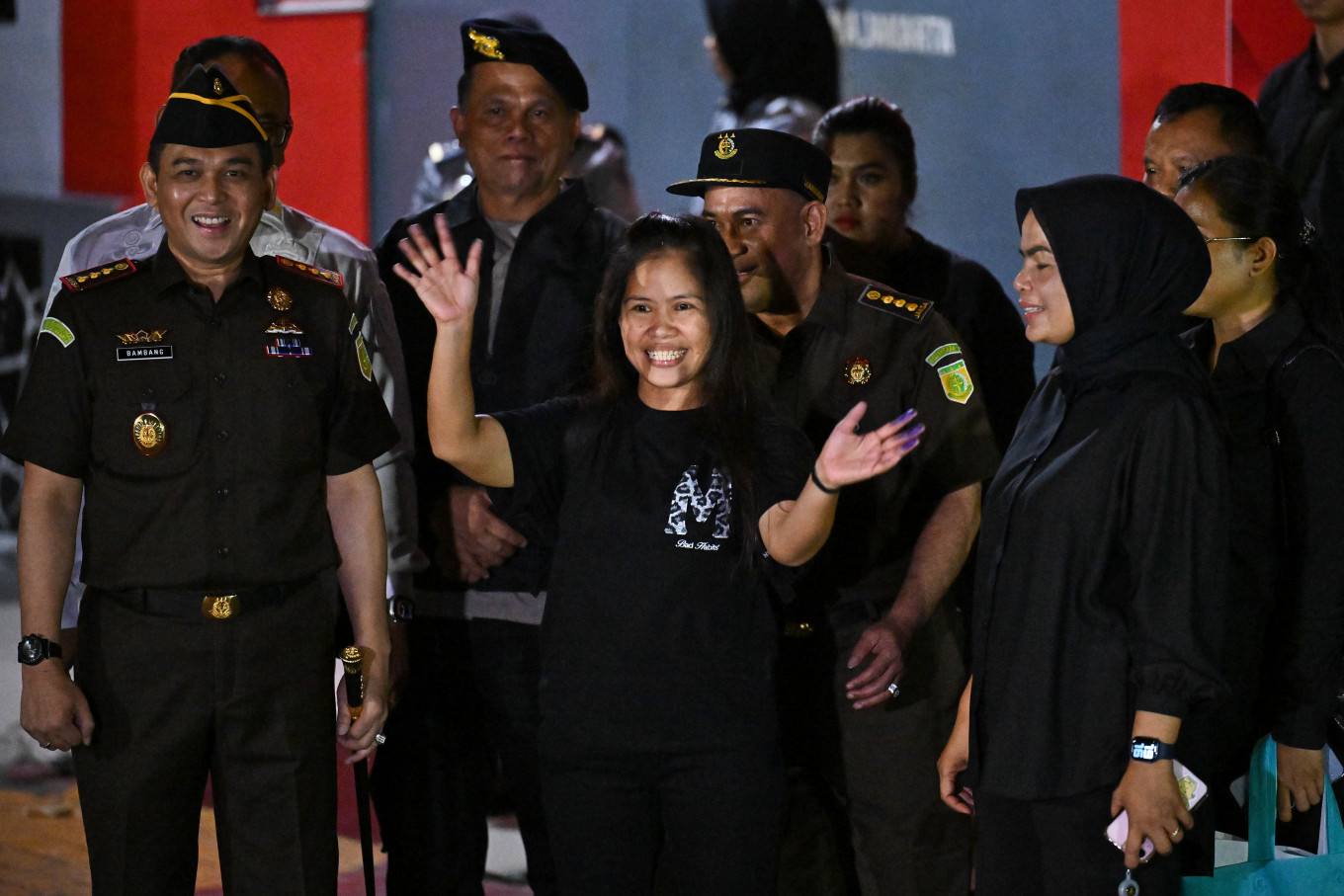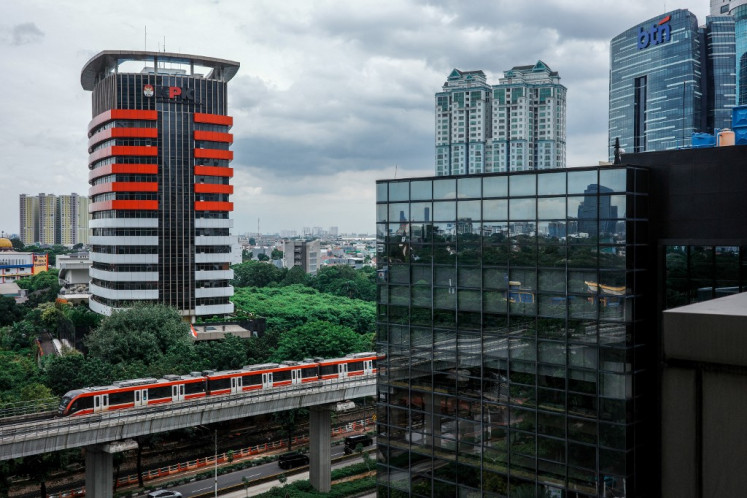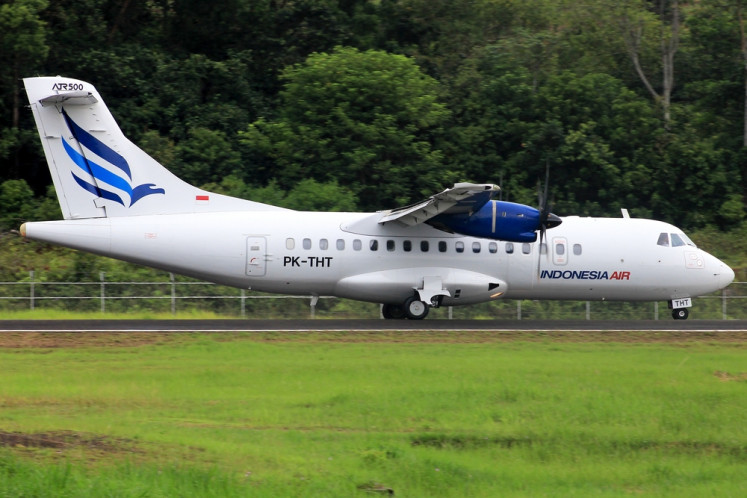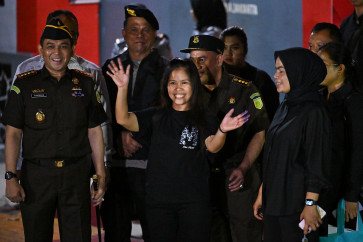Popular Reads
Top Results
Can't find what you're looking for?
View all search resultsPopular Reads
Top Results
Can't find what you're looking for?
View all search resultsGovt considers prisoner transfer, exchange bill to end legal ambiguity
Coordinating Law, Human Rights, Immigration and Correctional Services Minister Yusril Ihza Mahendra said the government aimed for the legislature to start deliberations for the bill before the end of this year.
Change text size
Gift Premium Articles
to Anyone
 Filipino citizen Mary Jane Veloso (left), on death row in a narcotics case, greets reporters on Dec. 17, 2024, after being discharged from the Pondok Bambu Class IIA Women's Prison in Jakarta. Mary Jane departed for Soekarno Hatta Airport in Tangerang to undergo a transfer to her home country on the basis of President Prabowo Subianto's discretionary policy. (Antara Foto/Aprillio Akbar)
Filipino citizen Mary Jane Veloso (left), on death row in a narcotics case, greets reporters on Dec. 17, 2024, after being discharged from the Pondok Bambu Class IIA Women's Prison in Jakarta. Mary Jane departed for Soekarno Hatta Airport in Tangerang to undergo a transfer to her home country on the basis of President Prabowo Subianto's discretionary policy. (Antara Foto/Aprillio Akbar)
T
he government is racing to complete a bill on prisoner transfers and exchanges to kick-start deliberations at the House of Representatives in the coming months, as it aims to end the legal ambiguity clouding the repatriation of foreigners convicted in the country.
The draft was finalized on Aug. 19 during a meeting led by Coordinating Law, Human Rights, Immigration and Correctional Services Minister Yusril Ihza Mahendra. The meeting was attended by officials from other institutions, including the Office of the Coordinating Political and Security Minister, the Foreign Ministry, the Law Ministry and the Attorney General’s Office (AGO).
In a press briefing after the meeting, Yusril acknowledged an urgent need for Indonesia to quickly pass the regulation, amid requests from several countries to have their nationals currently serving sentences in Indonesia be returned to their countries.
“We have managed to handle these requests [in the past] through what we call ‘practical arrangements’, while waiting for the bill to be prepared,” the senior minister said.
Yusril referred to a series of foreign drug convicts repatriated from Indonesia between December 2024 and January, including five Australian members of the so-called “Bali Nine” drug ring, Philippine national Mary Jane Veloso and French national Serge Atlaoui.
The three repatriations were carried out under so-called “practical arrangements” rather than under provisions of law, prompting experts to question the legal basis. But the government downplayed the concerns, asserting that such deals were within President Prabowo Subianto’s authority.
The prisoner transfer bill will regulate how Indonesia establishes agreements on the transfer of convicted persons and other forms of criminal cooperation with other countries, Yusril said. The draft law will be in line with the 2000 United Nations Convention against Transnational Organized Crime ratified by Jakarta in 2009.

















